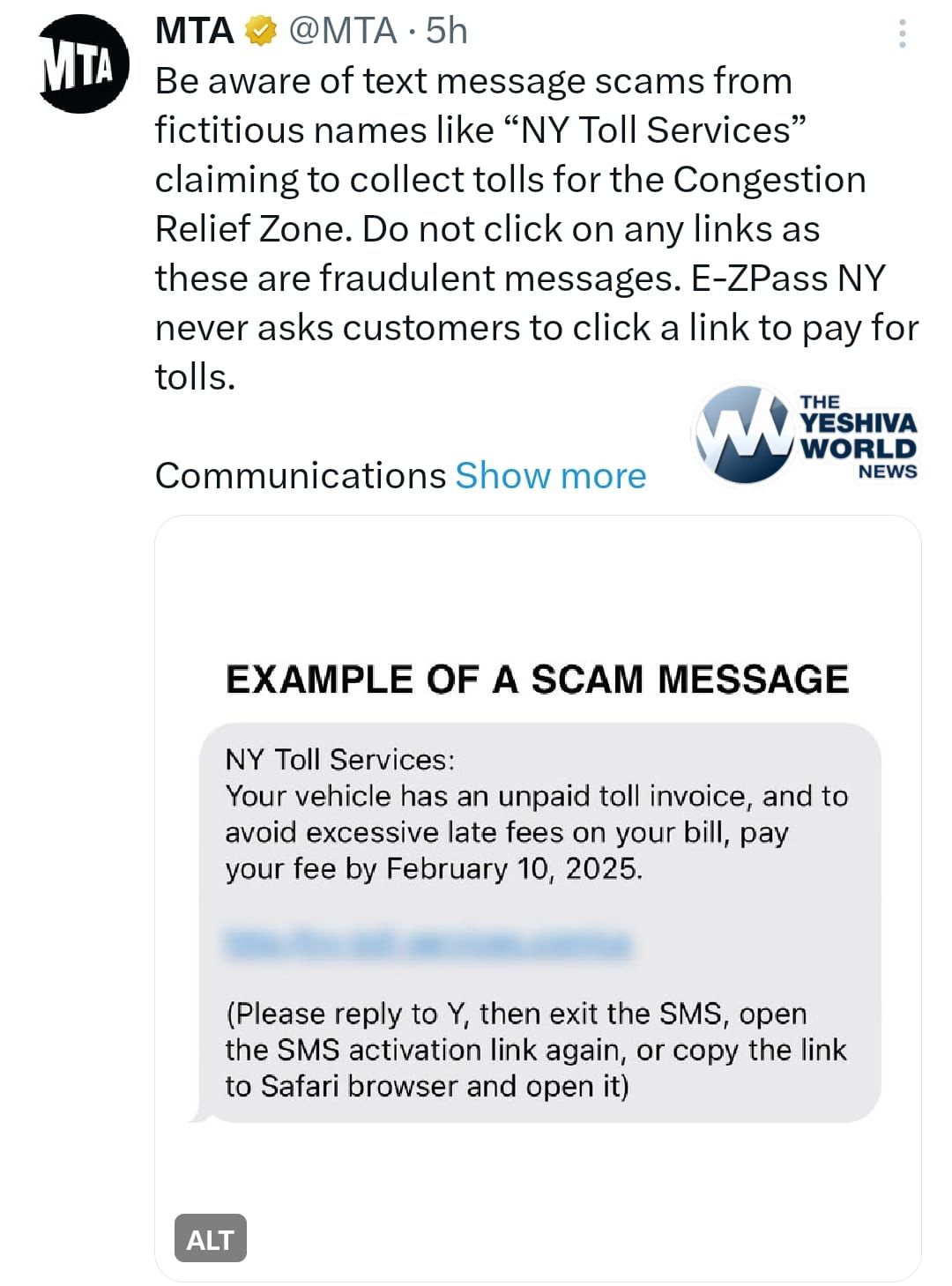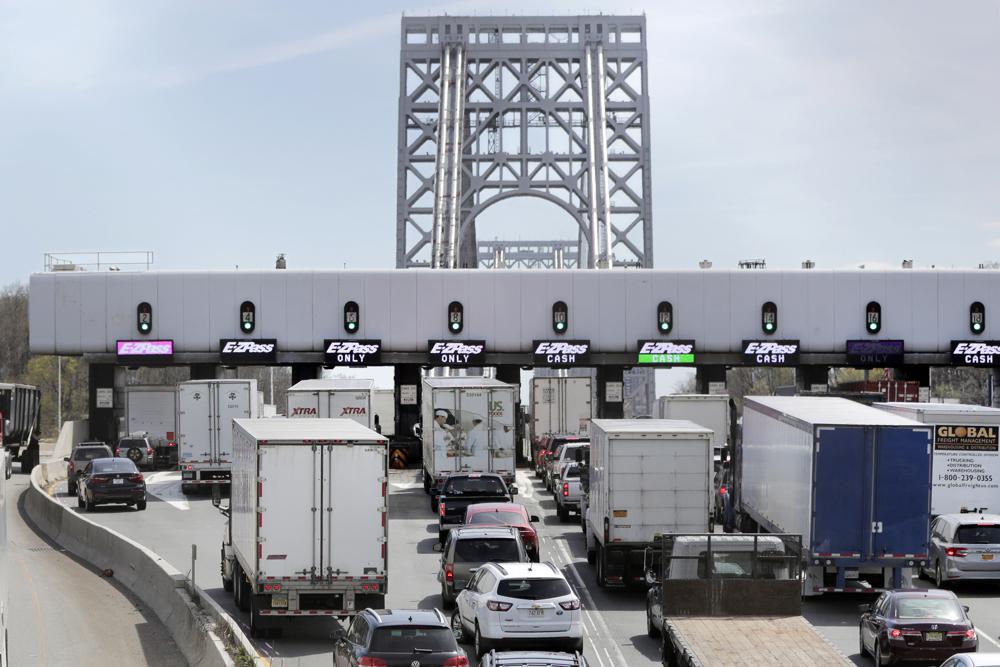Motorists are being cautioned about a fraudulent E-ZPass scam that has surfaced following the implementation of New York City’s congestion pricing plan. State transportation officials have issued warnings about deceptive text messages claiming to be from E-ZPass, falsely notifying recipients of unpaid toll invoices.
The scam messages attempt to create urgency by warning drivers that failure to pay will result in excessive late fees. Officials stress that these messages are not legitimate and advise recipients to avoid clicking any links contained within them.
Scammers are impersonating toll collection agencies by sending fake SMS messages. Some of these texts reference “NY Toll Services” or other fictitious names to appear credible.

“This is NOT an authorized communication from E-ZPass or the toll agencies associated with E-ZPass,” an alert on the official EZ-Pass website states. “We advise you NOT to access the website contained within the message if you should receive one.”
The fraudulent scheme appears to be capitalizing on the recent rollout of congestion pricing, which began on January 5. The program, introduced by Governor Kathy Hochul, imposes a $9 toll on vehicles entering Manhattan’s central business district below 61st Street during peak hours. While the initiative aims to reduce traffic congestion and generate revenue for the Metropolitan Transportation Authority (MTA), it has also created some confusion among drivers—an opportunity scammers are exploiting.
Some advocates are questioning why the MTA has not yet issued direct warnings to E-ZPass account holders regarding the scam.
Several transportation agencies that operate E-ZPass services, including the Port Authority of New York and New Jersey and the New York State Thruway Authority, have also issued fraud alerts.
Officials emphasize that E-ZPass will never request sensitive personal information such as Social Security numbers or birth dates via text messages or unsolicited emails. Genuine E-ZPass communications will only direct users to the official websites: EZPassNY.com and TollsByMailNY.com.
Motorists who receive suspicious messages are encouraged to report them to the FBI’s Internet Crime Complaint Center at www.ic3.gov.
(YWN World Headquarters – NYC)












One Response
That’s funny
Isn’t the entire EZpass was a scam?
The scammer can’t handle competition